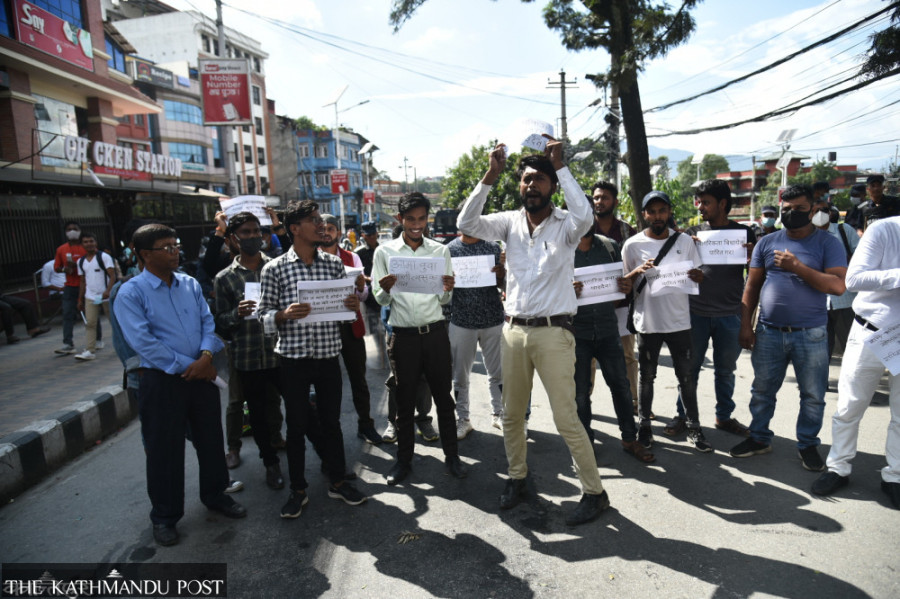Editorial
Continuing injustice
The citizenship question remains a combustible issue and it would be wise to address it on time.
When President Ramchandra Paudel authenticated the amendment to the Citizenship Act, those who had long been denied their rightful claim to citizenship were euphoric. At long last, they would be able to call Nepal home. But that was not to be. Not long after the President authenticated the bill to amend the Act, his move was challenged with a writ at the Supreme Court. The amendment was aimed at providing a sense of statehood, through citizenship by descent, to over 400,000 children of parents who obtained citizenship by birth. It would also allow non-resident Nepalis (NRNs) to acquire cultural, economic and social rights. This would, ultimately, help Nepal put to use the expertise and economic might of the NRNs.
The use of a judicial process to stall the implementation of the amended Citizenship Act and thereby deprive citizenship to its rightful claimants exposes the deep mistrust among inhabitants of this country. A citizenship is not something to be obtained through the benevolence of a few powerful sections of the population that are insecure about the identity of others. Rather, it is a fundamental right that comes embedded with an individual’s very being. More so in a democratic state that gains its legitimacy by the very fact that it does not discriminate against those who have genuine claims as its members.
That a small coterie of people could misuse the system to define who has the rights to citizenship attests to the still infant stage of our democracy. In a country where every fundamental amenity to be provided by the state is linked to citizenship, its denial on flimsy bases is insensitive and immoral. The discriminatory practices of citizenship in Nepal has led to people being deprived of healthcare, employment and education that most of us take for granted. And yet it continues to be a thorny issue as the discourse is driven not by the ideals of democracy and citizenship but by the biases of language, race and ethnicity. What’s more, the amendment does not even address what has been the most contested issue on citizenship: The provision of requiring a cooling period for foreign men married to Nepali women.
The Citizenship-less People’s Struggle Committee has been organising protests in Kathmandu ever since the Supreme Court issued an interlocutory interim order asking authorities not to enforce the new amendment to the Citizenship Act authenticated by President Ramchandra Paudel. The protesters have been demanding that the new amendment be immediately implemented so that their dream of getting Nepali citizenship finally comes to fruition. The state, meanwhile, has responded to the peaceful protests with force, as if it does not recognise its own decision to table the amendment bill in Parliament.
Rather than continue to delay implementation of the amended Citizenship Act, the supposedly aggrieved parties should look at their own privileges and show some empathy towards their fellow humans who are as eligible for citizenship as they are. The citizenship question remains a combustible issue with dangerous implications and it would be wise to address it on time. Already, a young man, Niraj Kumar Jha, has killed himself after his attempts at getting citizenship failed. Another young man, Niraj Kumar Kamat, tried self-immolation while protesting against the discriminatory citizenship distribution practices. We cannot keep postponing somebody’s right just because our exclusionary ideas of citizenship do not include those who are not like us.




 9.7°C Kathmandu
9.7°C Kathmandu














